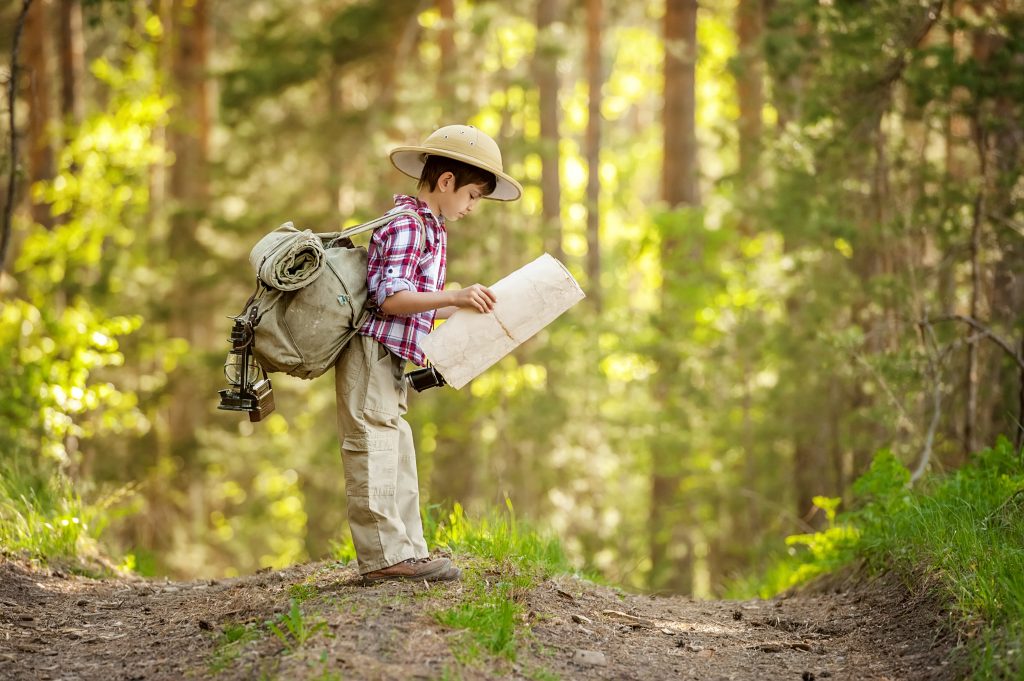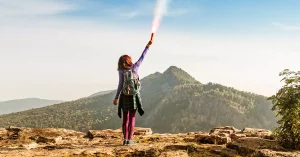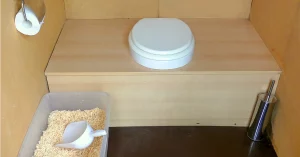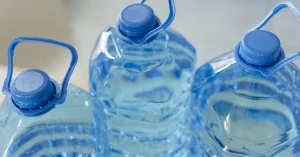One of the more challenging things about preparing for a disaster is preparing our children. Children can’t keep a secret, even if you pay them to. So whatever you do, you can’t tell your kids why you’re doing it. But at the same time, you can’t keep everything a secret.
Survival skills to teach your child is extremely important, as there might be a time when they need to survive on their own, either because they become lost or because they somehow become separated from the family in a survival situation. Either way, it’s important that they know how to survive on their own, should the need arise. At the same time, the more survival skills they have, the less of a burden they will be in the event that the family has to survive.
So how do you teach them survival skills, without telling them why? You make those skills into part of other things you are doing. Many survival skills can be folded into camping quite easily and others can become part of your life at home. So, what are the top skills you should teach your children?
Starting a Fire
Perhaps the most basic survival skill to teach our children is the ability to start a fire. Fortunately, this is one that’s easy to teach on camping trips, as well as at home. Being able to start a fire through a variety of different ways helps ensure that they’ll be able to start a fire, no matter what the circumstances. Don’t forget to include methods which will work in wet, windy weather.
While starting a fire may sound like one area of instruction, it’s actually three: finding the right ingredients to build a fire, knowing how to lay a fire, and starting the fire. Then, of course, there are lots of different ways of starting a fire that they can learn.
Finding Water
Since water is such a high survival priority, finding it, when there is no running water, is a daily necessity. Your children have to be able to find it in both the city and in the wild, which requires different knowledge and different techniques. In the city, they need to know the places where water is likely to be found, both inside the house and in the city. That’s different than knowing where to look for it in the wild, using the signs that nature gives them to know where to look for groundwater.
Purifying Water
Any water must be considered to be suspect in a survival situation, as it is impossible to tell the good water from the bad. This is a challenging concept for kids, who are accustomed to turning on the faucet and getting clean drinking water. Worse than that, they really don’t understand about germs.
But if they can’t purify their drinking water, there’s a good chance they’ll come down with dysentery, which can kill. They need to know several methods; not just using a water filter. Like starting a fire, this is one of those areas where knowing more methods is better.
Building a Shelter with Natural Materials
Shelter is essential for helping maintain body heat, especially in bad weather. Finding shelter in the city isn’t all that bad, as there is shelter all around us, even if we don’t have access to it all. But finding or building shelter in the wild is challenging. Fortunately, there are several ways of building simple shelters from materials that are readily available in the wild. This can be a fun project to do camping, making a different type of shelter on each trip.
Basic First-aid
First-aid is really a skill that’s above most children’s ability; but that doesn’t mean it has to stay that way. Children can learn the basics, such as cleaning a wound, applying antiseptic and bandaging it to keep it clean. As they grow older, they can learn how to deal with more and more complicated wounds. Be careful here, as you don’t want to emotionally overwhelm them with something that is more than they can handle. At the same time, you want them to learn as much as they are capable of dealing with.
Fishing
The easiest way of harvesting food from nature is fishing; making it an important survival skill to teach our children. Fortunately, it’s also a fun pastime, which most kids enjoy doing. The big trick is getting them to be patient enough to catch anything.
Of course, for the purpose of survival, we’re talking about fishing with a minimal of gear. So the thing to do here is make a game out of it. Start out by teaching them to fish, then take their fishing gear away from them, bit by bit, challenging them to find a way to fish without it.
The other part of this, which is important, is the ability to make fish traps. Few adults know how to do that, so if you can teach your kids how to make a few simple traps, they’ll be ahead of most of their adult peers.
Swimming
While swimming isn’t needed in every survival situation, not knowing how to swim is something that can turn a simple situation into a deadly survival one. Every child needs to know how to swim, especially if they live around any body of water. Being able to swim will allow them to rescue themselves, if they fall in the water.
Children can learn how to swim much younger than most of us realize. There are some who teach their babies how to swim, before they even know how to walk. While that may sound ridiculous, it’s a great way of protecting your children.
Shooting & Self-defense
With all the dangers and dangerous people in the world today, there’s a real need for everyone to know how to shoot and how to use a gun in self-defense. That also means knowing when to do so. Shooting is a skill that can be learned and it’s surprising how young children can start learning it. Start with a pellet rifle, then work their way up from there.
A child who understands guns isn’t likely to get into a gun-related accident. Those happen when children are curious about their parents’ guns, and don’t have the understanding to know they should leave those guns alone. In many cases, the only thing they know is what they’ve seen on television. That’s dangerous.
Map Reading & Land Navigation
Map reading and land navigation are complex skills, which take time to learn. But that doesn’t mean that children can’t start learning them. As with shooting, this is a skill where you should start slowly, taking your time in teaching them. The more they learn, the better a chance they’ll be able to find their way home or to your survival retreat, if they need to.
Moving Quietly
This is a skill that takes a lifetime of practice. Nevertheless, it’s a valuable survival skill to teach our children. Children don’t naturally move quietly, so it has to be taught to them. In doing so, you give them the ability to hide from two-legged predators who might seek them out.
Gardening
While gardening isn’t a skill that your children are likely to need to do on their own, teaching them how to garden will help your family’s survival. If you are ever in a time where you need to be living off the food from your garden, you’ll need to increase that garden to the point where you’re all going to have to work it together.
Scavenging Supplies
Scavenging is a controversial subject within the survival community. On one hand, it may end up being necessary in order to survive. On the other hand, the line between scavenging and looting is often hard to define. We don’t want to be in the position of taking something that someone else needs to survive and we definitely don’t want to teach our children to do that.
Another part of the problem here is that in teaching our children to scavenge, we’re also teaching them how to steal. So we want to be sure that we instill the right morals into them as well, so that they don’t use those skills in the wrong way.
On the other hand, there are many potential TEOTWAWKI (the end of the world as we know it) scenarios where scavenging is going to be necessary, not only to survive, but to help rebuild society. Anyone who knows how to get into places where they shouldn’t be will be valuable to the community in that time.
Protecting Themselves from an Epidemic
With COVID-19 a part of our lives, we can’t forget about the need for our children to be able to protect themselves from disease, especially an epidemic. This may not be the only epidemic they face, making it an important survival skill to teach our children. That means going far beyond just teaching them the basics. Even with everything that has been said about wearing masks and washing hands, there are a lot of people who don’t understand when to wear their mask or wash their hands.




